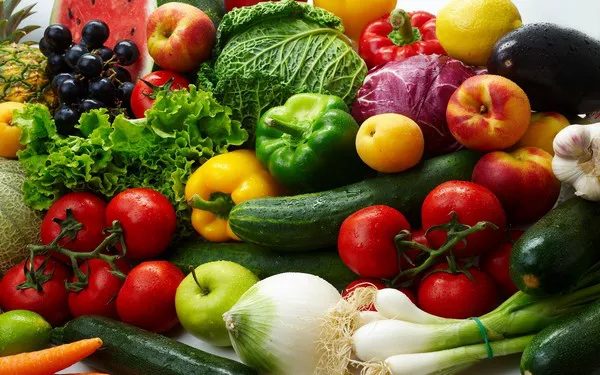When it comes to protein, animal-based sources like meat, poultry, and fish often take the spotlight. However, for those following a vegetarian or vegan diet or looking to reduce their meat consumption, protein-rich vegetables can be valuable additions to their plates. In this article, we explore the world of protein vegetables—plant-based powerhouses that not only offer essential nutrients but also contribute to a well-rounded and sustainable diet.
Plant-Based Protein: A Nutritional Necessity
Proteins are fundamental building blocks for the human body, involved in various physiological functions, including muscle development, immune support, and enzyme production. While animal-based sources are complete proteins, containing all essential amino acids, plant-based sources may require combining different foods to obtain a complete amino acid profile. Nevertheless, many vegetables provide substantial protein content, making them essential for individuals adopting a plant-based lifestyle.
15 Veggies That Are Rich in Protein
1. Edamame: The Mighty Soybean Pod
Edamame, young and green soybeans, is a versatile and nutritious protein vegetable. With approximately 18.5 grams of protein per cooked cup, edamame is an excellent source of plant-based protein. Besides protein, edamame offers dietary fiber, vitamins, and minerals, making it a well-rounded addition to salads, stir-fries, or enjoyed on its own as a satisfying snack.
3. Spinach: The Protein-Rich Leafy Green
Spinach is a nutritional powerhouse, known for its rich iron and calcium content. Additionally, this leafy green boasts a surprising amount of protein, with about 5 grams per cooked cup. Incorporating spinach into smoothies, salads, or sautéed dishes not only boosts protein intake but also provides an array of vitamins and minerals essential for overall health.
4. Peas: Small Yet Mighty Green Gems
Peas, both garden peas and split peas, are impressive protein vegetables. Garden peas contain approximately 8 grams of protein per cooked cup, while split peas, often used in soups and stews, offer a remarkable 16 grams per cooked cup. Peas are also rich in dietary fiber, vitamin C, and other nutrients, making them a nourishing choice for plant-based diets.
5. Broccoli: The Protein-Packed Cruciferous Veggie
Broccoli, part of the cruciferous vegetable family, is celebrated for its abundance of vitamins and minerals. Surprisingly, broccoli also contains protein, with about 4 grams per cooked cup. This vegetable’s versatility allows for a myriad of culinary creations, from roasted broccoli to broccoli stir-fries, ensuring a flavorful way to incorporate protein into meals.
6. Brussels Sprouts: Miniature Protein Gems
Brussels sprouts, resembling mini cabbages, may not immediately come to mind when thinking of protein vegetables. However, these cruciferous delights offer approximately 4 grams of protein per cooked cup. Additionally, they provide fiber, vitamin C, and vitamin K, making them a nutritious option for enhancing protein intake in plant-based diets.
7. Asparagus: The Elegant Protein Source
Asparagus, a gourmet delight, is a surprising protein vegetable, offering about 4 grams of protein per cooked cup. This low-calorie vegetable is also a rich source of vitamins A, C, and K, as well as folate and fiber, making it a delightful addition to a protein-rich diet.
8. Artichokes: The Versatile Protein Flower
Artichokes, known for their distinct flavor and unique appearance, are a delightful source of protein, containing approximately 4 grams per cooked cup. These edible flower buds also boast dietary fiber, vitamins, and minerals, promoting a balanced and nutritious diet.
9. Kale: The Nutrient-Dense Green Giant
Kale, often lauded as a superfood, is packed with essential nutrients, including protein. With around 3 grams of protein per cooked cup, kale is an excellent choice for enhancing protein intake. This leafy green is also a rich source of vitamins A, C, and K, calcium, and antioxidants, making it a powerhouse for overall health.
10. Cauliflower: The Surprising Protein Source
Cauliflower, a versatile vegetable known for its ability to mimic rice and even pizza crust, offers a modest amount of protein, with approximately 3 grams per cooked cup. This cruciferous gem also provides vitamins, minerals, and fiber, contributing to a well-rounded and nutritious diet.
11. Sweet Corn: The Summery Protein Choice
Sweet corn, a summer favorite, is a delectable source of plant-based protein, offering about 5 grams per cooked cup. This vibrant vegetable is also rich in antioxidants, vitamins, and minerals, making it a delightful and nutritious addition to a plant-based diet.
12. Lentils: The Protein Powerhouse
While technically legumes, lentils deserve mention as exceptional protein sources. These tiny, lens-shaped wonders provide an impressive 18 grams of protein per cooked cup. Lentils come in various colors and varieties, each adding a unique flavor and texture to dishes. From soups and stews to salads and curries, lentils are a versatile and essential component of plant-based diets.
13. Chickpeas: The Protein-Rich Legume
Chickpeas, also known as garbanzo beans, are a beloved plant-based protein source. With approximately 15 grams of protein per cooked cup, chickpeas form the basis of popular dishes like hummus and falafel. Their creamy texture and nutty flavor make them a delightful addition to salads, curries, and grain bowls.
14. Black Beans: The Versatile Protein Gem
Black beans, a staple in Latin American cuisine, are a versatile and protein-rich legume. Offering around 15 grams of protein per cooked cup, black beans are an excellent addition to a diverse array of dishes, from burritos and tacos to soups and salads.
15. Green Peas: The Tiny Protein Powerhouses
Green peas, commonly enjoyed fresh or frozen, are a delightful source of plant-based protein. With approximately 8 grams of protein per cooked cup, green peas complement various dishes and add a vibrant touch to meals.
Conclusion
Protein vegetables are valuable contributors to plant-based diets, offering essential nutrients and a range of culinary possibilities. From edamame and spinach to lentils and chickpeas, these protein-rich vegetables ensure that individuals following vegetarian or vegan lifestyles can meet their protein requirements in a delicious and sustainable manner. By incorporating a variety of plant-based protein sources into their diets, individuals can enjoy the benefits of a well-rounded and nourishing approach to nutrition while supporting their overall health and well-being.


